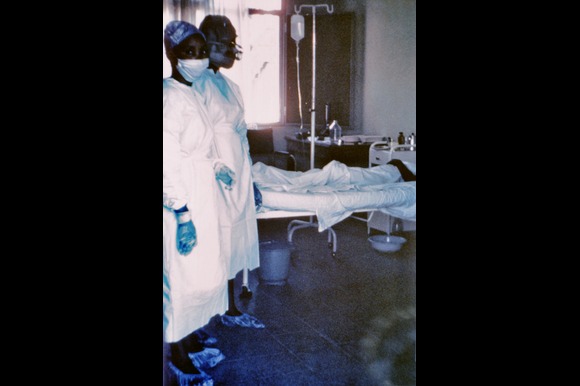The Democratic Republic of Congo is grappling with a new suspected Ebola outbreak that may have caused 15 deaths among 28 people showing symptoms, the nation’s health ministry announced on Thursday.
This marks the 16th recorded Ebola outbreak in Congo, with Health Minister Samuel-Roger Kamba warning that the fatality rate, currently estimated at 53.6%, underlines the severity of the crisis.
First Confirmed Case in Pregnant Woman
Authorities confirmed the infection in a 34-year-old pregnant woman from the locality of Boulapé in southern Kasai province. Investigations into the remaining suspected cases are still underway.
“To date, the provisional report shows 28 suspected cases and 15 deaths, including 14 in Boulapé and one in Mweka, as well as four infected health care workers,” Kamba stated. Those affected reportedly exhibited symptoms such as fever, vomiting, diarrhea, and severe bleeding.
WHO Mobilises Emergency Response
The World Health Organization (WHO) confirmed that it has dispatched experts alongside Congo’s Rapid Response Team to Kasai province. Their focus is on strengthening disease surveillance, bolstering treatment facilities, and reinforcing infection prevention and control measures. The organization is also delivering critical supplies including personal protective equipment, mobile lab kits, and essential medicines.
Congo currently holds a stockpile of Ebola treatments as well as the Ervebo Ebola vaccine, according to WHO. “We’re acting with determination to rapidly halt the spread of the virus and protect communities,” said Dr. Mohamed Janabi, WHO Regional Director for Africa.
Ebola’s High Contagion Risk
Ebola, a rare but extremely severe illness, is notorious for its high fatality rates. The virus spreads through direct contact with bodily fluids such as blood, vomit, or semen. Past outbreaks in Congo and other African countries have caused widespread fatalities, underscoring the urgency of swift containment.
With the outbreak in Kasai province still developing, health authorities are racing to control transmission and prevent the virus from spreading further into surrounding communities.






